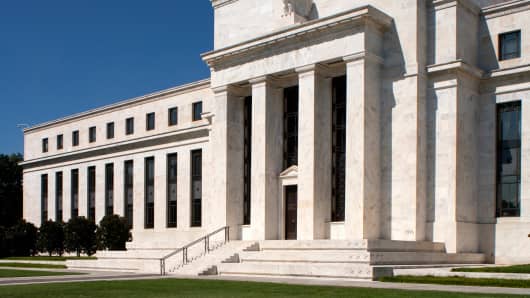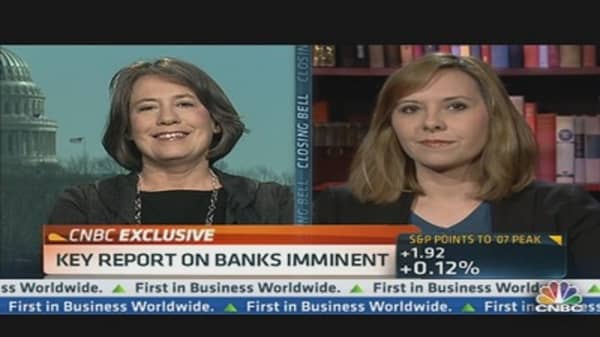The Fed evaluates each of the banks' plans and their planning process. Its determination of whether or not to approve a capital plan depends, in part, on whether the bank would have sufficient capital after a proposed dividend or buyback to meet its financial obligations in a severe economic downturn. It also looks at the process the banks use to arrive at their proposals and how the banks would measure up under the new international bank capital requirements known as Basel 3.
The Fed did not object to the capital plans of Goldman and JPMorgan outright. But it did require each of them to submit new capital plans by the end of the third quarter of this year to "address weaknesses in their capital planning processes." This finding of weakness was not something that was widely anticipated for either Goldman or JPMorgan. A failure to remedy the process would be grounds for rejection of the plans.
In the meantime, each of these banks may begin returning profits to shareholders in the form of dividends or buybacks. Goldman and JPMorgan learned of the specifics of the Fed's concerns with their planning processes earlier Thursday.
A senior Fed official referred to this as "conditional approval" of the capital plans of these two banks.
The objection to Ally Financial's plan was widely anticipated as it was the only bank to outright fail last week's stress test. The Fed said Ally's capital plan received an objection both on the grounds that its capital ratios would not meet Fed requirements and that its process for capital planning was inadequate. Ally submitted a revised plan but had this also subjected.
The rejection of BB&T's plan is likely to catch many market-watchers off-guard. It was widely expected to ask and receive approval to maintain its current capital plan. The Fed said BB&T's capital plan was objected to based on a qualitative assessment conducted by the Federal Reserve, meaning its capital position would not be strong enough in a stressed economic situation.
Two years ago, Bank of America had its plan to increase dividends rejected, an embarrassment after its CEO had promised a dividend hike. Last year it was Citigroup's turn to be surprised, after the Fed said it could not increase its dividend.
These reviews were begun in the wake of the financial crisis. The 18 banks subject to the tests paid out 19 percent of their profits in common dividends in 2012, half of what they paid out before the financial crisis in 2006.
"The financial crisis showed not only that regulators needed to increase capital requirements and conduct regular stress tests, but also that firms need strong internal processes to evaluate their own capital needs based on their individual risks and circumstances," Federal Reserve Governor Daniel Tarullo said in a statement.
The Fed's announcement did not reveal the particular plans of each bank to make dividends or buy back shares. But many banks immediately announced their plans.
- Bank of America announced a $5 billion stock buyback program, sending shares sharply higher in extended-hours trading.
- Citigroup said it plans a $1.2 billion stock buyback program, sending shares slightly higher in extended-hours trading.
- JPMorgan said it will raise its second-quarter dividend to 38 cents a share from 30 cents a share and announced a $6 billion buyback plan.
- Goldman Sachs said the Fed did not object to its proposed capital actions, but, it will resubmit its capital plan by the end of the third quarter, "incorporating certain enhancements to its stress test processes."
- American Express raised its quarterly dividend by 15 percent to 23 cents a share and announced a $4 billion buyback.
- Bank of New York Mellon said it will repurchase up to $1.35 billion of common stock. Shares edged higher in extended-hours trading.
- U.S. Bancorp announced a $2.25 billion stock buyback program and a likely dividend increase. Shares rose in extended-hours trading.
- Regions Financial said it plans to raise its quarterly dividend to 3 cents a share from a penny a share. Shares climbed in extended-hours trading.
- Morgan Stanley said that received approval for the cash acquisition of the remaining 35% interest in Morgan Stanley Smith Barney Holdings LLC from Citigroup.
- Fifth-Third said it had been approved a very detailed capital plan that includes a combination of buybacks, share conversions and a potential increase in its quarterly dividends.
- Ally Financial said it continues to disagree with the Fed's "analysis of its capital adequacy in a stressed scenario."
What are bank and financial stocks doing now? Click here for the latest quotes.





